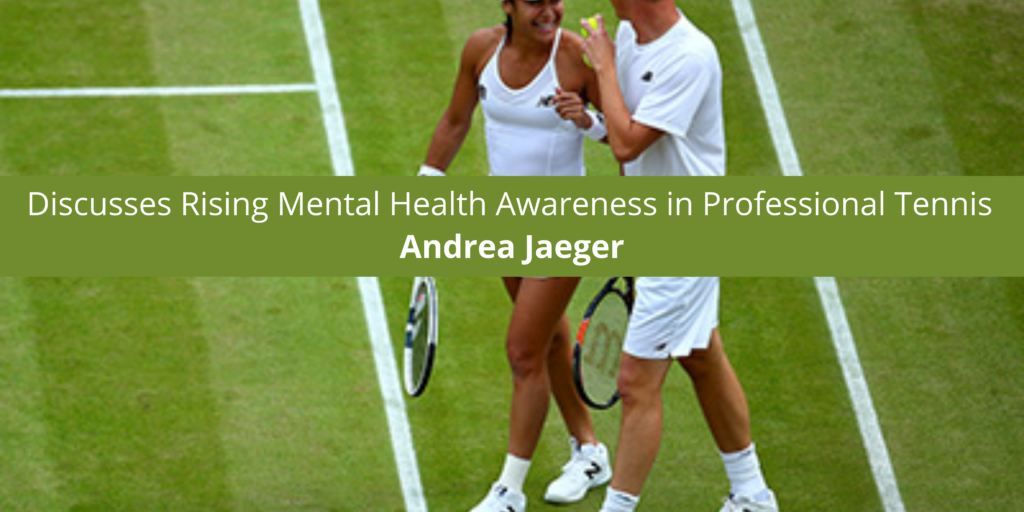Andrea Jaeger Discusses Rising Mental Health Awareness in Professional Tennis


According to Andrea Jaeger, all eyes were on the French Open this year. But it was action off the court that attracted the most attention.
When superstar Naomi Osaka withdrew from the tournament in order to focus on her own mental health, she ignited a media firestorm. Ironically, this was the same attention she was trying to avoid. Her announcement coincided with the last day of May, which happened to be Mental Health Awareness Month. It also came one day after being fined $15,000 and threatened with harsher punishments if she continued to skip her mandatory media obligations. Despite Osaka suffering self-described “long bouts of depression,” tournament officials had apparently felt the need to draw a hard line. Fortunately, Osaka was prepared to do the same.
And Osaka isn’t accustomed to losing. Ranked no. 2 in the world, Osaka was propelled into the spotlight after her then-shocking victory over Serena Williams in the 2018 U.S. Open. Since then, the 23-year-old superstar has compiled four major championships. In doing so, Osaka has become the world’s highest-paid female athlete, according to Forbes. She has racked up over $55 million in prize money and endorsements in 2020 alone.
Yet money and fame don’t make anyone immune to mental issues, Andrea Jaeger states. Winning isn’t a Band-Aid for anxiety and depression. Osaka first wanted to continue playing and simply skip the press conferences, which she described as “outdated.” In her social media post, Osaka apologized for being a distraction while acknowledging that exiting the tournament early was the best thing for other players and her own well-being. She went on to describe the “huge waves of anxiety” that came with being interviewed. By withdrawing, Osaka sent a resounding message about the importance of self-care and her commitment to her own mental health.
Luckily, Osaka is not alone. She joins a growing generation of tennis stars who have been more open and vocal about social, political, and racial issues. In a recent interview, Sloane Stephens detailed her regret about quarantining for a match instead of attending her grandmother’s funeral. In an Instagram post, Coco Guaff chronicled the pressures associated with being a 17-year-old phenom.
While these comments are important and obviously newsworthy, they also aren’t new. Retired tennis star Andrea Jaeger experienced her own battles dating back to the 1980s. After turning professional at the age of 14, she was ranked No. 2 in the world, became a Wimbledon finalist, and won the French Open mixed doubles championship. Yet she found her success unfulfilling. Something was missing. Just like Osaka, Andrea Jaeger has since given her voice, energy, and effort to help others.
The WTA has since issued its own statement in support of Osaka and her decision. Andrea Jaeger and others are hoping more athletes will continue to make mental health a priority.
